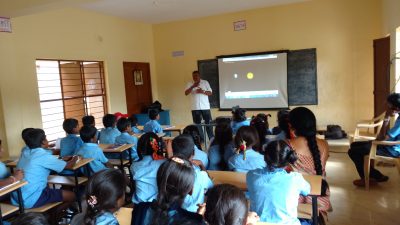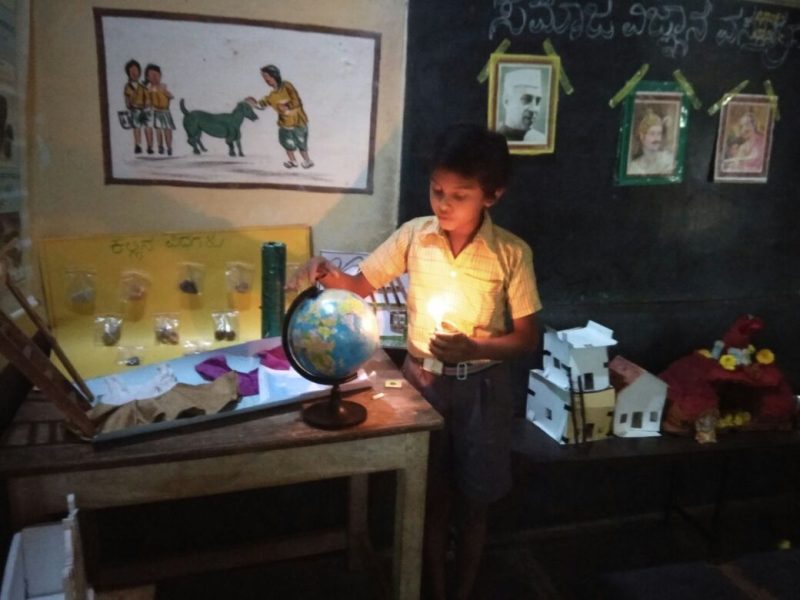India Literacy Project (ILP) — a Bangalore headquartered non-profit organisation — has been working with the Karnataka government to help utilise the digital content created by the ILP for the YouTube channels Pariksha Vani and Makkala Vani. The YouTube channels were launched by the government to continue the learning process online during the Covid-19 induced nationwide lockdown. ILP has also mapped its resources to state syllabus available online. They say there have been over 2,000 downloads of their content mostly by teachers, including private schools, officials of the education department at the district levels and other NGOs working with schools. “Hence, the reach is beyond the number of downloads, percolating into many schools and providing the much needed support during a difficult situation,” says Suchitra Rao, programme manager, advocacy – Government, CSR & Capacity Building, ILP.
Infact, Pramod Sridharamurthy, secretary of ILP says one of the tutorials on environment uploaded on Pariksha Vani had their content which was customised by the teacher. He says, “We have tonnes of powerpoint presentations and content ready that can be utilised by the experts to teach online classes. It can be edited without copyright issues to teacher’s convenience and teaching style and be used for online classes.”
Low cost smart infrastructure in government schools
ILP has been setting up low cost smart infrastructure in government schools over the last five years and training teachers to help improve quality of education in these schools. The NGO has also partnered with over 100 other NGOs to ensure education reaches all. Driven by the vision that literacy and education is the right of every child, the India Literacy Project (ILP), a 30-year-old NGO has been working towards bringing back underprivileged kids to schools. One might also say they have been quite successful. The ILP claims that in Gubbi, one of the districts in Karnataka, around 700 students have shifted back to government schools in over five years since they have started setting up low cost smart infrastructure.

A teacher in a government school using smart infrastructure
The NGO has set up low cost smart classes in over 380 higher primary and high schools in Karnataka and the resources designed/developed by ILP include digital content for math, science and social science for classes 4 through 10; low cost science kits with 150 components such as microscope, slides and test tubes; virtual learning using Google platform and satellite imageries especially for history and other subjects of social sciences; colour-coded libraries for children to help improve and assess their reading skills; and career counselling programme. In all, over 3,000 teachers have also been trained to use these resources. The success of the pilot project in Karnataka has helped ILP to expand its reach to over 800 schools in seven states across the country – Jharkhand, Bihar, Odisha, Madhya Pradesh, Telangana, Andhra Pradesh and Tamil Nadu.
The infrastructure for multidimensional learning space costs between Rs 40,000 to Rs 1.5 lakh, says Rao adding that the cost depends on the infrastructure that the school requires. “The response of the programme has been positive. We include teachers at all levels of our programme and hence, they too feel a part of it. They give ideas on the content and design and help improve the quality of education,” she says.
Virtual learning space
There are motivators (B Ed graduates) who visit schools, understand the roadblocks and help teachers to make a shift to digital learning and train them. Sridharamurthy says there has to be a change in the mindset of teachers who have teaching in conventional ways for years and decades together. “The teachers can edit our content according to his or her style, with examples, videos and activities that they like while they teach. These powerpoint presentations are open sources and they summarise content of important concepts that can be used to revise kids during the time of examination,” he says adding that they are also working on the creating resources with Google satellite images for social science lessons.
“Say, if students are being taught about Vijayanagar empire, the areas that were conquered by the dynasty can be mapped and shown to students. They can see the areas ruled by the four dynasties from the comfort of their classrooms.”
The resources are available in Kannada and English. They are planning to include Tamil, Telugu and Hindi too this year.
However, it is not easy to achieve quality education. “There are some challenges. The government processes have become slower due to the COVID-19 pandemic. We also require consistent CSR support. The infrastructure that we are setting up needs to be maintained well by the school too,” adds Rao.
Akhila Damodaran
Recommended: Teachers burn midnight oil to continue imparting education
Posted in News, States























